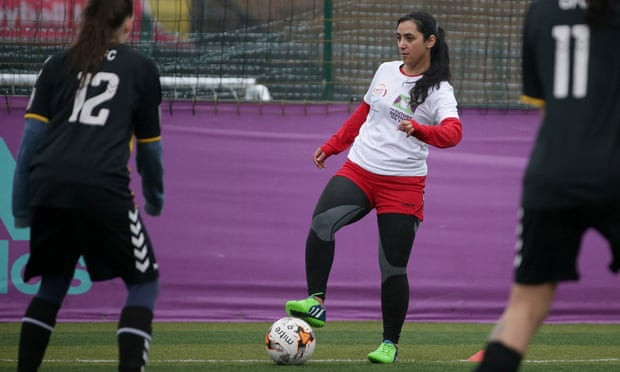The former captain of the Afghanistan women’s football team has advised her fellow players to delete social media, erase public identities and burn their kits for safety’s sake after the Taliban takeover.
Khalida Popal, who is now based in Denmark, said in a video interview on Wednesday, August 18, that the militants had killed, raped, and stoned women in the past and female footballers were scared of what the future may hold.
Popal, a co-founder of the Afghan women’s football league, said she had always used her voice to encourage young women “to stand strong, to be bold, to be visible” but now had a different message.
“Today I’m calling them and telling them, take down their names, remove their identities, take down their photos for their safety. Even I’m telling them to burn down or get rid of your national team uniform,” she said.
“And that is painful for me, for someone as an activist who stood up and did everything possible to achieve and earn that identity as a women’s national team player.
“To earn that badge on the chest, to have the right to play and represent our country, how much we were proud.”
Popal said football had enabled women to take a strong stand for their rights, and to defy those who would have them silenced. “They are so afraid. They are worried, they are scared, not only the players, but also the activists … they have nobody to go to, to seek protection, to ask for help if they are in danger,” she said of the situation now.
“They are afraid that any time the door will be knocked.”
“What we are seeing is a country collapsing,” she added. “All the pride, happiness to be there to empower women and men of the country is like it was just wasted.”
A spokesperson for Fifa said the world football body shared “concern and sympathy with all those affected by the evolving situation.
“We are in contact with the Afghanistan football federation, and other stakeholders, and will continue to monitor the local situation and to offer our support in the weeks and months to come.”
During their 1996-2001 rule, guided by Islamic law, the Taliban stopped women from working. Girls were not allowed to go to school and women had to wear burqas to go out, and then only when accompanied by a male relative.
Women who broke the rules, suffered humiliation and public beatings by the Taliban’s religious police.





















